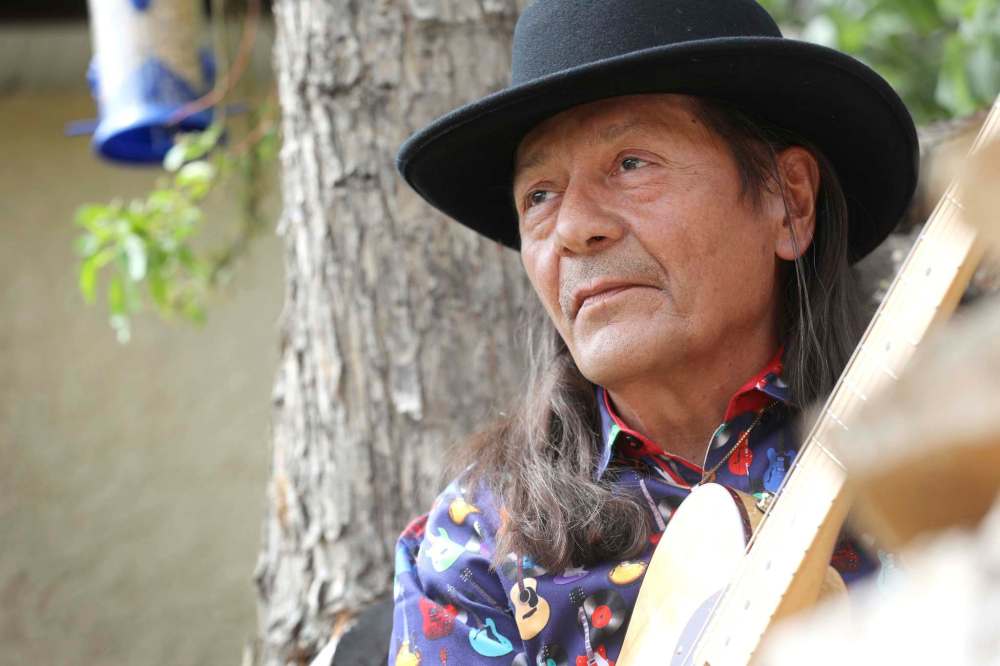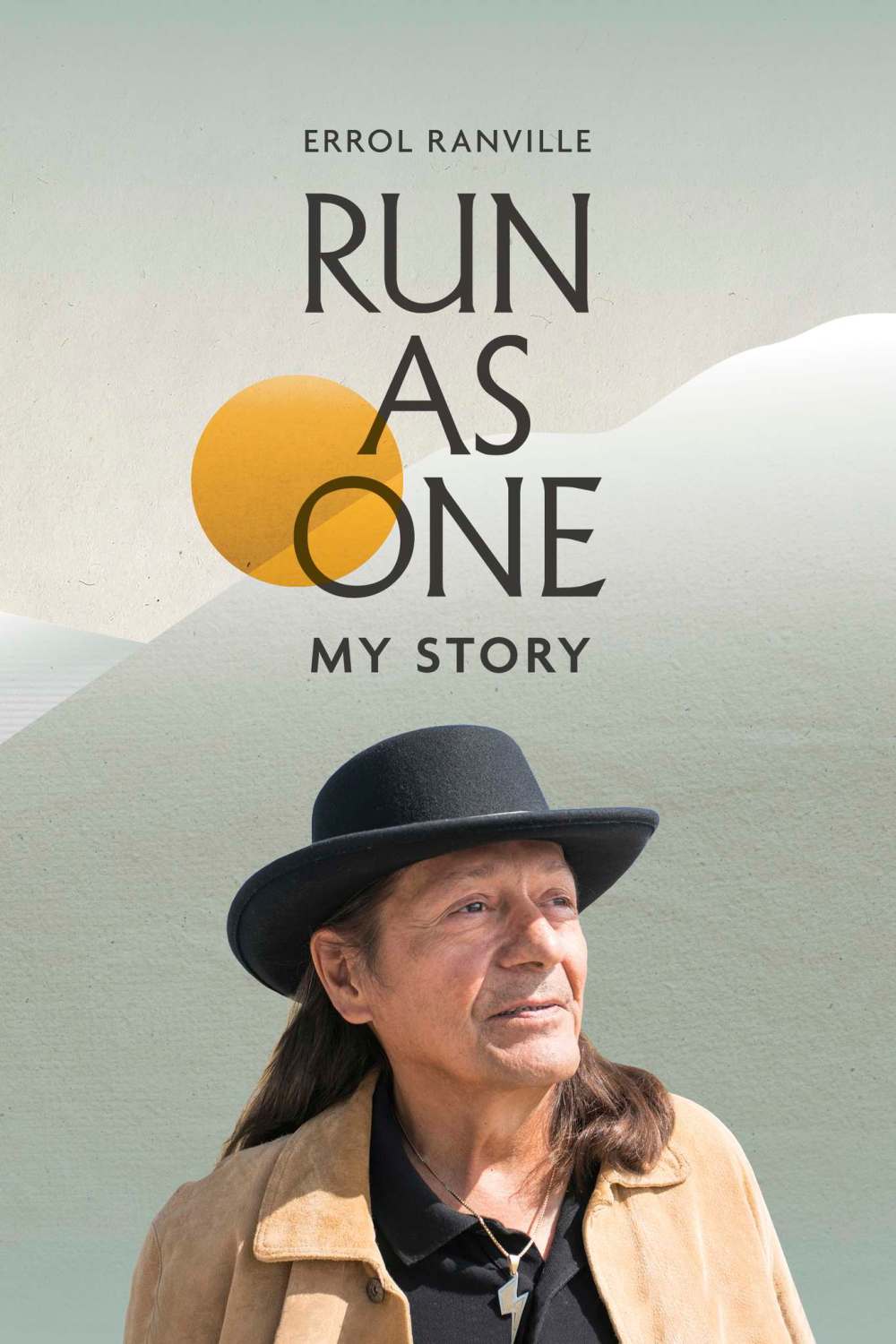Picking his battles
Country rocker Ranville recalls life's highs and lows in candid memoir
Advertisement
Read this article for free:
or
Already have an account? Log in here »
To continue reading, please subscribe:
Monthly Digital Subscription
$0 for the first 4 weeks*
- Enjoy unlimited reading on winnipegfreepress.com
- Read the E-Edition, our digital replica newspaper
- Access News Break, our award-winning app
- Play interactive puzzles
*No charge for 4 weeks then price increases to the regular rate of $19.00 plus GST every four weeks. Offer available to new and qualified returning subscribers only. Cancel any time.
Monthly Digital Subscription
$4.75/week*
- Enjoy unlimited reading on winnipegfreepress.com
- Read the E-Edition, our digital replica newspaper
- Access News Break, our award-winning app
- Play interactive puzzles
*Billed as $19 plus GST every four weeks. Cancel any time.
To continue reading, please subscribe:
Add Free Press access to your Brandon Sun subscription for only an additional
$1 for the first 4 weeks*
*Your next subscription payment will increase by $1.00 and you will be charged $16.99 plus GST for four weeks. After four weeks, your payment will increase to $23.99 plus GST every four weeks.
Read unlimited articles for free today:
or
Already have an account? Log in here »
Hey there, time traveller!
This article was published 26/06/2021 (1627 days ago), so information in it may no longer be current.
Winnipeg musician Errol Ranville’s autobiography, Run as One: My Story is a compelling and honest account of his life’s ups and downs.
Ranville is best known as the lead singer of the C-Weed Band, a group he and his brothers Randy, Wally and Don formed in the mid-1960s when Errol was a young teen.
The brothers, their eight siblings and parents Emile and Mary lived in a small house in Eddystone. Ranville recalls often being hungry, and his parents often having to rely on the local grocer’s charity to run a tab.

He wasn’t very interested in school, but was fascinated by country and early rock music he heard on the radio, as well as by musicians he saw performing on TV.
Ranville says the pain of the poverty he experienced disappeared when he listened to music: “music became my special place,” he writes.
As an Indigenous student attending public school in a predominantly white community, Ranville soon came to recognize societal racism. But he believed then, and continues to believe, that music is a means to erase barriers. He’s extremely proud of the fact that he and his brothers earned their fame through hard work and were recognized for much more than being Indigenous.
Obsessed with the Beatles, the four brothers scraped together the money needed to buy guitars and equipment. While the brothers gained popularity performing at local dances, it was when their parents decided to move the family to Winnipeg in 1968 that their horizons expanded.
In the late 1960s, Winnipeg’s music scene was thriving. Indigenous musicians typically played in Main Street bars, and the Ranville brothers were regular performers in the Brunswick Hotel.
“If Eddystone was the start of what would become C-Weed, then the Brunswick hotel was the next step,” Ranville writes. “We held court there for three years in the early 1970s. We played seven hours a day, six days a week.”
They increased their fan base by being the first band to fly into remote northern First Nations communities. Sometimes they were the first live performers the residents had ever watched.
Ranville said they knew they were serving as role models for Indigenous youth, so made an effort to act the part.
While covers such as Robbie Robertson’s Evangeline were popular with their audiences, Ranville realized the key to success was in writing his own songs.
“I hear a song, it comes to me, and I’ve got to get it written down before I lose it,” he writes.
Some of the first songs he wrote were recorded, eventually making it on to the band’s initial three albums. Black Jack Willy, which was off the band’s first album, hit number one on the Canadian country music charts. Ranville points out there were no Aboriginal radio stations or TV channels then, and the C-Weed Band’s music had to compete against all other country music at the time.

Ranville is proudest of his song Run as One, which he wrote in 1990 during the Oka uprising. After it was released 10 years later, it was a number one radio song for 17 weeks.
He writes candidly about his alcohol abuse that began when he was a teenager. He later got hooked on cocaine, but has stayed substance-free for more than 31 years.
Errol says he’s a survivor, and has fallen and risen throughout his life, but his biggest challenge by far came in 2010. While driving with his wife Marcie to perform at Opaskwayak Cree Nation near The Pas, their Jeep was hit head on by a car driven by a teenager with three teen passengers, all of whom had apparently been drinking. All but Ranville were killed; he was seriously injured, with bones in both legs shattered and a spinal fracture.
While Ranville was recuperating and trying to come to terms with his wife’s death, he was charged with careless driving. He had to fight the charge, arguing the other vehicle didn’t have headlights on, and that it was in the wrong lane. After two years, the case was stayed; Ranville says he might sue the province and RCMP in the future.
Following the accident, Ranville has largely moved away from the spotlight, and has started mentoring young Indigenous artists. He also writes of a vision to have an Indigenous village and marketplace developed on the south side of the Forks — a site that would attract tourists and showcase talent.
In writing Run as One, the shy, skinny kid from Eddystone offers inspiration for anyone who has a dream. Keep on running, Errol.
Andrea Geary is a freelance writer living in Winnipeg.


